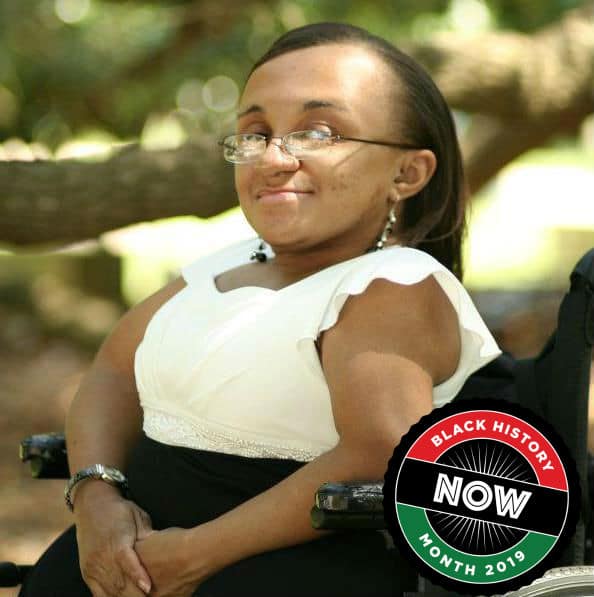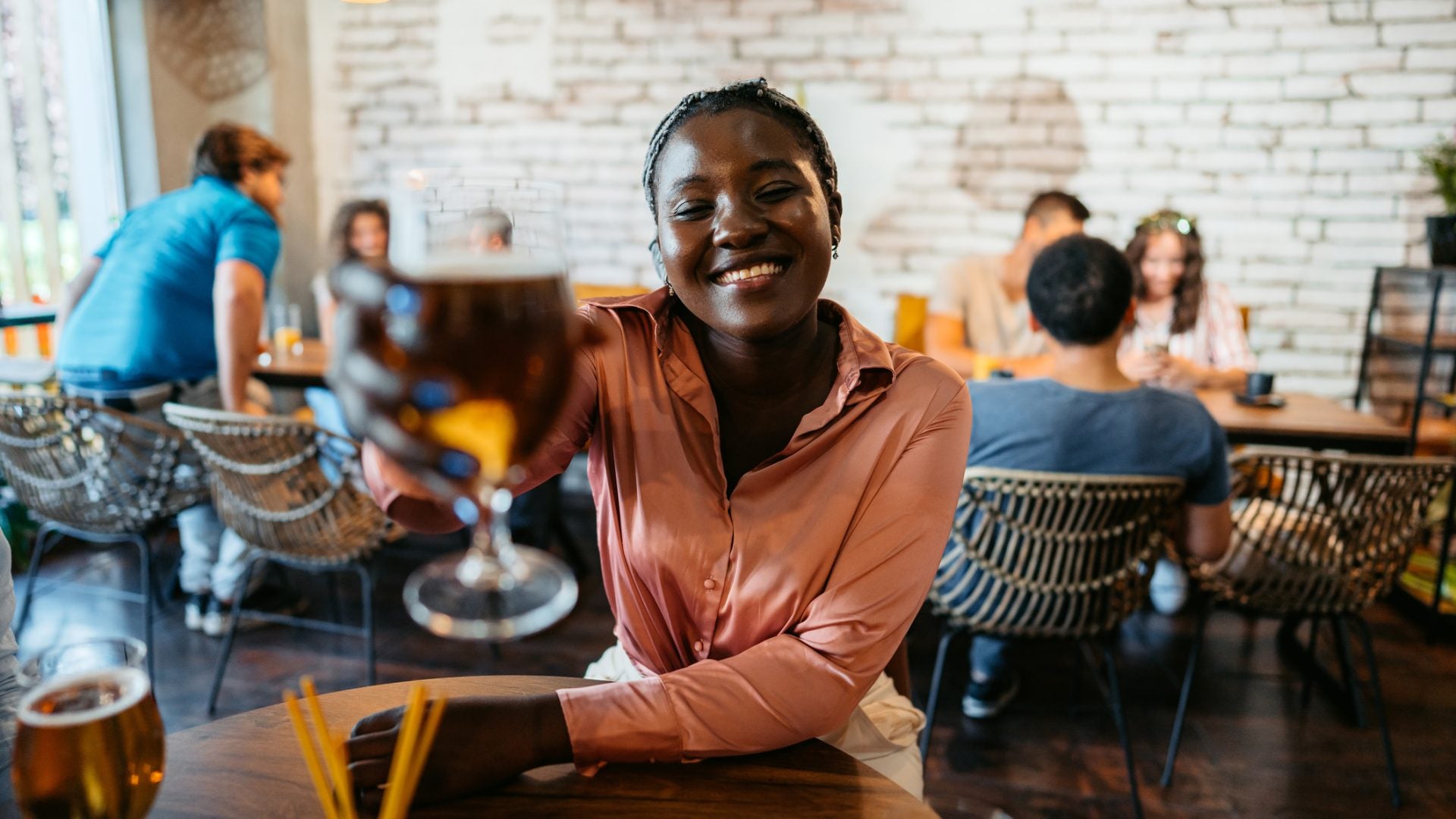“Why can’t God’s image be disabled and queer? Does God make mistakes? Is that it?”
Vilissa Thompson is someone who defies definition. Binaries. Boxes. And in ways that are constant, enthusiastic and, frankly, creative.
That said, if you ask Thompson to succinctly define herself, she’ll tell you that she is sex-positive. That
she is a writer. And an activist. A public speaker. Or that she is a licensed social worker (a field that she has a master’s degree in). Or that she created
the viral hashtag #DisabilityTooWhite. Or, most importantly, that she is a
disability-rights consultant (and advocate), and one who is first and foremost Black, and from whom Blackness cannot be separated.
Thompson’s disability-rights advocacy is rooted in her background as a social worker. Whereas other groups are more focused on the “numbers”—on the statistical or traditionally scientific or medical side of disability and disability rights—Thompson focuses on the tangible, socio-political aspects that have real-world applications and consequences, which she comes across constantly in her line of work. She refers to this emphasis as the “social work” perspective.
Thompson’s extensive background in this area led her to establish
Ramp Your Voice in 2013. She is both the founder and the CEO of the organization, where she combines her work in disability rights, background in social work and perspective as a Black woman who has a disability to address the
unique obstacles that people with disabilities face—particularly
if they are Black.
“#RampYourVoice is my way of empowering the voices that I did not see a lot [of] during [my] mid-20s [and] teens. That was just my way of blogging … or talking about something that was on the news or something that interested me. Or [just] my own personal experiences. And through the past, now, six years, it has grown to me discussing disability from an intersectional lens,” Thompson tells ESSENCE.
“I started off doing this work broadly. Talking about a range of subjects … to show my range. Because I knew if I had started off just talking about ‘Black issues’ [or disabled issues], I would be just pigeonholed in
that because there wasn’t many of us [Black women with disabilities] who were blogging at the time,” she adds.
Thompson’s words speak to the unique and nigh-claustrophobic phenomenon that many of us who are Black and something else experience when trying to speak up for our multiple communities. Of course, this neither scares nor discourages Thompson; she thanks her late grandmother for instilling this kind of confidence in her.
Thompson, a South Carolina denizen, was raised there, in Winnsboro, by her grandmother Viola. When Thompson was born, she was given six to eight years to live and was placed in a children’s home in Washington, D.C., by her mother because of the potential hardships of raising a child with such a potentially short life span.
Viola, however, was not having it. She took Vilissa, raised her as her very own and loved her fiercely—and without exception—as a grandmother should. She never made her feel out of place for her disability, and she was adamant that Vilissa would be adequately prepared for life. As an elder Black woman who grew up in the thick of the Great Depression (and in the rural South), she knew firsthand the hardships that Black people with disabilities could and did encounter. Viola insisted that Vilissa at the very least be equipped with a proper education, one that would ensure her autonomy after Viola was long gone.
Viola passed in 2015, but the legacy of her tenacious spirit, her commitment to doing the work (even if, as an elder, she may not have had the precise language for it) and her impact on Thompson remain. Thompson grew up knowing about the complexities of being Black and having a disability, as well as the invisible disabilities that may go undiagnosed and uncared for in our communities, for various reasons.
“One thing I noticed [especially on Twitter] is that many of us, particularly Black women, talk about our mental health … or if we have fibroids, things of that nature. … We talk about that so openly, and it kind of really astounded me because I’m like, ‘Y’all know you’re like me, right? You know you’re disabled, right?’” Thompson states.
“But I understand why we don’t [identify] that way because of the historical reasons, particularly if we think of slavery, but also thinking culturally,” she continues. “If we think of our parents or even our grandparents, you didn’t need
that one extra thing. It’s already hard being Black, and then you got
this. And then you gotta think about access to health care, particularly when it comes to mental health—particularly when it comes to Black women, when it comes to postpartum depression, when it comes to getting doctors to take our symptoms seriously because they have this … erroneous thinking that we don’t experience pain.
“When you think of all these barriers, you’ll understand why many of us don’t self-identify, because we don’t want
that one more thing to have to worry about,” she says. “I don’t judge people who don’t self-identify, because I understand. I still hold us accountable because we still project the ableism and the
stigma by not self-identifying.”
Thompson is hoping that as more
information about apparent and nonapparent disabilities becomes available, and as more people with disabilities become more visible, myths surrounding disabilities and erroneous associations of disability with weakness will be dispelled. Not wanting to appear weak is a huge point of contention in our community, be it physically, financially, emotionally, mentally or sexually. But such associations are incorrect and need to be addressed—not only because they are wrong but also because they are killing us.
They are killing (disabled) Black women and (disabled) Black people.
Our silence is a death sentence.
This is the core of Thompson’s advocacy. This will be the foundation of her legacy. And she has no plans to slow down until disability is not just “one more thing” to deal with.







